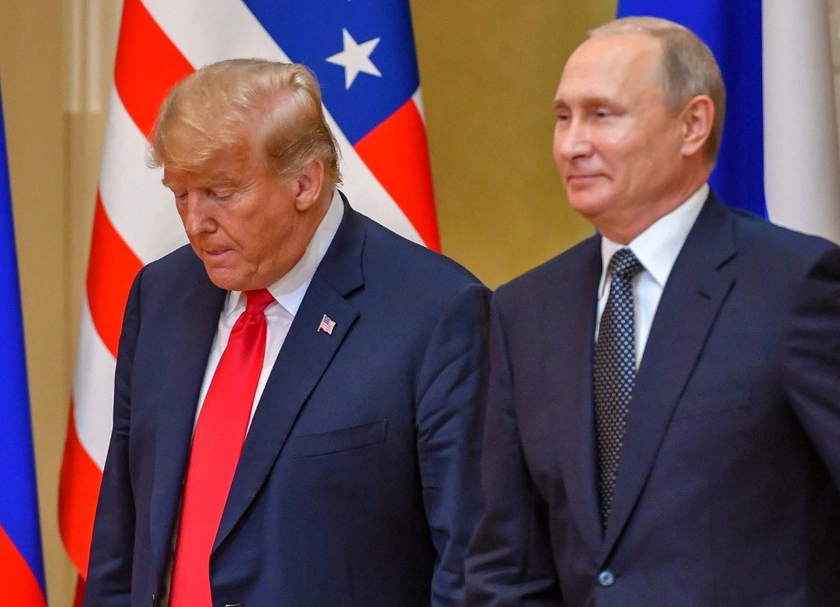Russia’s war with Ukraine continues to reveal interesting tensions that highlight that there are major problems with the governance of Russia. There is an important paradox here in that President Vladimir Putin has become one of Ukraine’s most powerful weapons. Putin continues to act irrationally and irresponsibility with his actions working against the long-term interests of the Russian people.
Over the last two decades Putin’s actions have eroded Russia’s statehood. Russia should no longer be recognized as a nation state, but as Putin’s fiefdom. One of the problems facing the Russian people is that Putin is not subject to Russian law – he works above and outside the law. This is a clear sign that Russia is no longer a nation state.
There are many signs of Putin’s lawlessness. The best perhaps is Russia’s admission that it paid 85bn rubles to support the Wagner group or Yevgeny Prigozhin’s mercenaries. Such a payment could only have been authorized by Putin and yet mercenaries are illegal under Russian law.
Putin should have been held to account by the Russian legal system for supporting an illegal organization with public funds. Such actions are normal for a fiefdom but would not be tolerated in a properly functioning nation state.
Russia is a country with an opaque governance and legal system, and it is one in which Putin can do anything he wants to protect his position. His actions do nothing to enhance Russia’s position. In fact, the opposite is the case as Putin’s leadership continues to erode Russia’s economic and military security. His actions do nothing to enhance the welfare of Russian citizens.
ISW Russian Offensive Campaign Assessment, March 14, 2025
Under Putin, Russia is best described as an increasingly disorganized irrational fiefdom. There are many indications of Russia’s disorganized irrationality. The decision to raise the maximum age at which men can be conscripted from 27 to 30 is an excellent example. This is an ‘own goal’ for Putin and highlights his increasing despair and irrationality.
All this must be placed in the context of Russia’s Presidential elections that will be held in 2024. Of course, Putin will wield his election engineers to ensure that most Russians continue to vote for Putin as boss of his fiefdom.
One of the major problems with a fiefdom is that there are no checks and balances on the boss man. The outcome is irrationality. In a war it is important to try to get inside the mind of the opposition. President Volodymyr Zelenskyy has worked out how to read Putin, but Putin continues to fail in his attempt to read Zelenskyy and his supporters. Ukraine can nudge Putin into making decisions that work against the interests of Putin’s fiefdom. Zelenskyy has identified that Putin has “flashpoints” or sensitivities that if disrupted result in Putin making irrational decisions.
Putin’s flashpoints include any Ukrainian attack on the Kerch or Crimean Bridge or any damage to Crimea or Moscow. A Putin flashpoint is evidenced by any immediate act of revenge by Putin in response to a Ukrainian military initiative.
Revenge is not something that leads to positive outcomes; acts of revenge are not strategic interventions, but irrational acts. Putin’s acts of revenge are own goals. In a properly functioning nation state checks and balances exist that are intended to safeguard the interests of citizens against leaders who consider themselves to be above the law. There are no such checks and balances on Putin’s flashpoints.
There have been two recent examples of Putin’s irrationality driven by acts of revenge. On the one hand, there has been his revenge in response to Ukraine’s attack on the Kerch bridge. This has included attacks on Odesa including targeting its historic center. Putin’s decision to authorize military activities against a UNESCO World Heritage site is against the interests of all humanity and yet comes with no military outcomes for Russia. This act includes the part destruction of Odesa’s cathedral which is an excellent example of Putin barbarism.
On the other hand, Putin has decided not to continue participating in the grain deal that was protecting the interests of some of the most vulnerable people on this planet. Moreover, Putin is destroying grain-related infrastructure as revenge in response to damage to an inanimate structure - a bridge.
Putin is weaponizing food and for what end as the outcome works against Russia and Putin’s own interests. Putin’s decision to attack grain store located in Ukrainian ports on the River Danube, and Odessa’s grain terminals, should be considered as a crime against humanity as the outcome will be malnutrition, starvation and death experienced by citizens living across the Global South.
There is too much of a tendency to define Russia's war with Ukraine as one that reflects a tension between Russia and the West. This is a misreading of the situation as Putin's recent actions regarding international food security highlight that this is a battle between Russia and any country involved in flows of grain from Ukraine.
All nations of the world should combine to call out Putin and Russia and to support Ukraine in its time of need.
John R. Bryson, Professor of Enterprise and Economic Geography - University of Birmingham. The University of Birmingham is ranked amongst the world’s top 100 institutions, its work brings people from across the world to Birmingham, including researchers and teachers and more than 8,000 international students from over 150 countries.
The views expressed in this opinion article are the author’s and not necessarily those of Kyiv Post.
You can also highlight the text and press Ctrl + Enter











